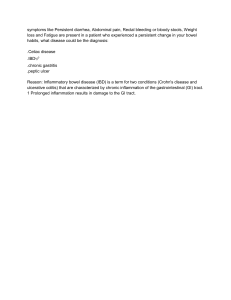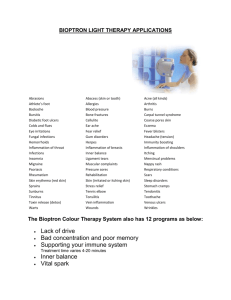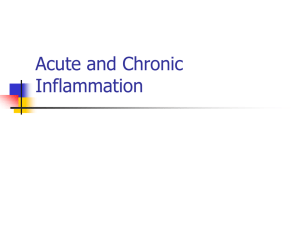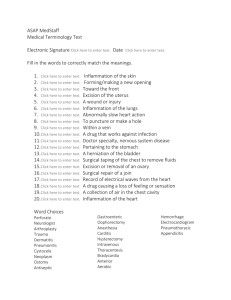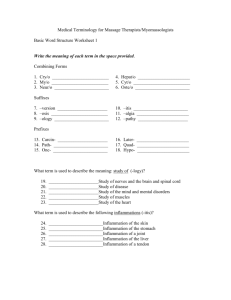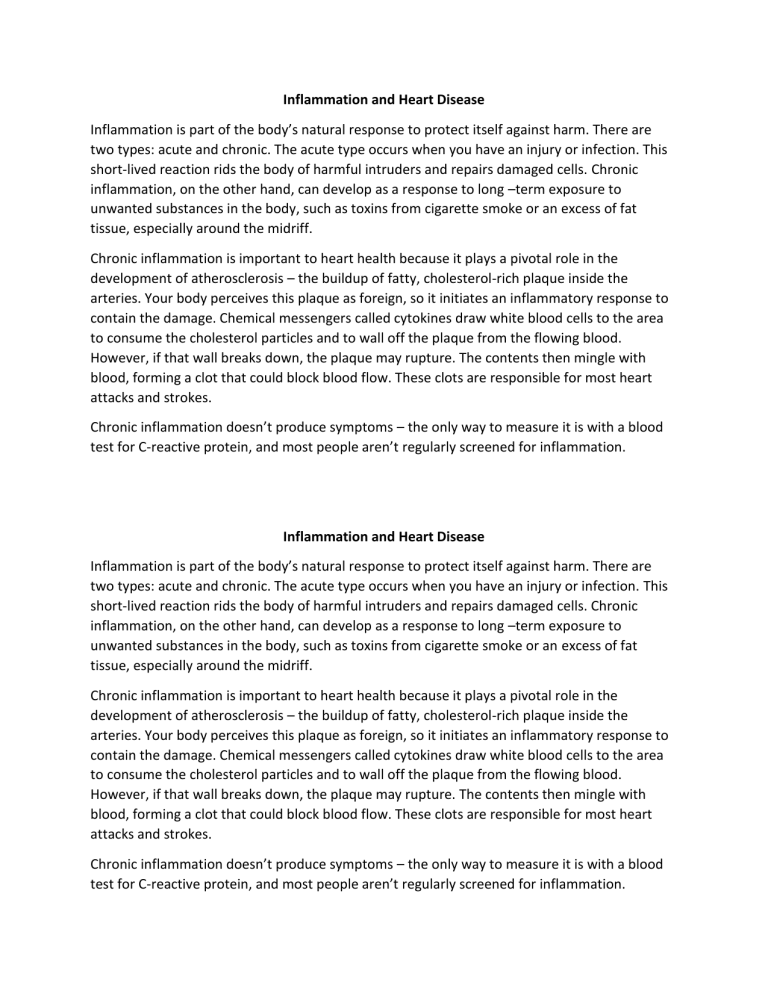
Inflammation and Heart Disease Inflammation is part of the body’s natural response to protect itself against harm. There are two types: acute and chronic. The acute type occurs when you have an injury or infection. This short-lived reaction rids the body of harmful intruders and repairs damaged cells. Chronic inflammation, on the other hand, can develop as a response to long –term exposure to unwanted substances in the body, such as toxins from cigarette smoke or an excess of fat tissue, especially around the midriff. Chronic inflammation is important to heart health because it plays a pivotal role in the development of atherosclerosis – the buildup of fatty, cholesterol-rich plaque inside the arteries. Your body perceives this plaque as foreign, so it initiates an inflammatory response to contain the damage. Chemical messengers called cytokines draw white blood cells to the area to consume the cholesterol particles and to wall off the plaque from the flowing blood. However, if that wall breaks down, the plaque may rupture. The contents then mingle with blood, forming a clot that could block blood flow. These clots are responsible for most heart attacks and strokes. Chronic inflammation doesn’t produce symptoms – the only way to measure it is with a blood test for C-reactive protein, and most people aren’t regularly screened for inflammation. Inflammation and Heart Disease Inflammation is part of the body’s natural response to protect itself against harm. There are two types: acute and chronic. The acute type occurs when you have an injury or infection. This short-lived reaction rids the body of harmful intruders and repairs damaged cells. Chronic inflammation, on the other hand, can develop as a response to long –term exposure to unwanted substances in the body, such as toxins from cigarette smoke or an excess of fat tissue, especially around the midriff. Chronic inflammation is important to heart health because it plays a pivotal role in the development of atherosclerosis – the buildup of fatty, cholesterol-rich plaque inside the arteries. Your body perceives this plaque as foreign, so it initiates an inflammatory response to contain the damage. Chemical messengers called cytokines draw white blood cells to the area to consume the cholesterol particles and to wall off the plaque from the flowing blood. However, if that wall breaks down, the plaque may rupture. The contents then mingle with blood, forming a clot that could block blood flow. These clots are responsible for most heart attacks and strokes. Chronic inflammation doesn’t produce symptoms – the only way to measure it is with a blood test for C-reactive protein, and most people aren’t regularly screened for inflammation.
